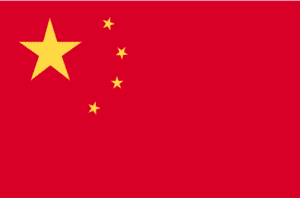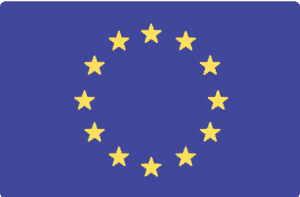Welcome to Watson’s Monthly! The Monthly is a document that gives you roundup of the major stories and developments that happened over the course of January.
This will give you a different view of how things developed over the month and will really help your understanding and recall of the events as they happened.
IN BIG PICTURE NEWS…

In the US – The US Treasury Secretary Janet Yellen spooked markets earlier in the month by implying that interest rates might have to increase to curb inflation, but then “walked it back” later on in the day as markets plunged on these remarks. Her remarks seemed somewhat prescient because, the following week, US inflation rose by an above-consensus rate of 4.2% in April versus the previous year, further fuelling the thesis that the American economy is overheating. The official response from the Fed was that the US is in a period of the “normalisation” of prices and that there will be volatility in the months to come. Still, research from NielsenIQ showed that consumers are facing higher prices with products like freezers, dishwashers and various garden products all rising. Meanwhile, US jobless claims figures fell further than expected as anecdotal evidence of shortages of staff in certain areas like hospitality continued to build.
 In China – The latest census figures show that China’s population growth has slowed down to levels not seen since 1953. Other key official data from the National Bureau of Statistics this month showed that although the Producer Price Index (PPI) increased at its fastest pace since October 2017, manufacturing growth is slowing down. Worryingly, retail sales figures were also underwhelming, which is not great because consumer spending is an important economic driver.
In China – The latest census figures show that China’s population growth has slowed down to levels not seen since 1953. Other key official data from the National Bureau of Statistics this month showed that although the Producer Price Index (PPI) increased at its fastest pace since October 2017, manufacturing growth is slowing down. Worryingly, retail sales figures were also underwhelming, which is not great because consumer spending is an important economic driver.
 In Japan – economic output fell in Q1 as the coronavirus state of emergency hit consumer spending. Up until relatively recently, Japan had been seen to be handling the pandemic pretty well, but this news was another blow to the increasingly unpopular (among locals) upcoming Olympics.
In Japan – economic output fell in Q1 as the coronavirus state of emergency hit consumer spending. Up until relatively recently, Japan had been seen to be handling the pandemic pretty well, but this news was another blow to the increasingly unpopular (among locals) upcoming Olympics.
 In Europe – the European Commission revised its GDP forecasts and thinks that the bloc is going to bounce back more quickly than expected.
In Europe – the European Commission revised its GDP forecasts and thinks that the bloc is going to bounce back more quickly than expected.
 In the UK – the Bank of England raised its estimate for UK GDP growth for 2021 to 7.25% (the fastest GDP growth rate since WW2!) from the previous estimate of 5%, due to successful vaccine rollout and easing of restrictions. It was also worth noting that the latest BDO survey showed that service sector confidence is at its highest level for 14 months – important given that the service sector is responsible for about 80% of the UK’s GDP! Positive economic momentum continued as the latest data from the CIPD showed that recruitment was rising across the board in the UK. This was then topped off by the UK’s official inflation figure doubling from the previous month. Pressure on the BoE to increase interest rates earlier than expected is clearly building!
In the UK – the Bank of England raised its estimate for UK GDP growth for 2021 to 7.25% (the fastest GDP growth rate since WW2!) from the previous estimate of 5%, due to successful vaccine rollout and easing of restrictions. It was also worth noting that the latest BDO survey showed that service sector confidence is at its highest level for 14 months – important given that the service sector is responsible for about 80% of the UK’s GDP! Positive economic momentum continued as the latest data from the CIPD showed that recruitment was rising across the board in the UK. This was then topped off by the UK’s official inflation figure doubling from the previous month. Pressure on the BoE to increase interest rates earlier than expected is clearly building!
 In commodities – Oil giant Saudi Aramco saw strong earnings for Q1 – something that other oil majors have been experiencing due to increasing momentum in global trade. This month also saw the hacking of the major US pipeline (Colonial Pipeline) by a group of hackers called DarkSide which led to petrol stations running dry as people were panic-buying petrol sending it up to $3 a gallon, its highest level for seven years! It turns out that the company eventually paid the hackers and supply came back online.
In commodities – Oil giant Saudi Aramco saw strong earnings for Q1 – something that other oil majors have been experiencing due to increasing momentum in global trade. This month also saw the hacking of the major US pipeline (Colonial Pipeline) by a group of hackers called DarkSide which led to petrol stations running dry as people were panic-buying petrol sending it up to $3 a gallon, its highest level for seven years! It turns out that the company eventually paid the hackers and supply came back online.
Iron ore price reached record highs due to strong demand from China and the BDI, which tracks freight rates, was at its highest level for over 10 years. This is important because the BDI is used by many as a barometer for the state of world trade. It was also interesting to see that the International Energy Agency said that the renewable industry grew at its fastest rate since 1999, with wind power capacity almost doubling and solar power increasing by over 50%.
Meanwhile, the UN Food and Agriculture Organisation’s food price index hit a new high after increasing for 11-months straight. This just highlighted that the prices of staples including sugar, cereals and meat are continuing to rise, putting further pressure on inflation and household budgets.
 …in cryptocurrency…
…in cryptocurrency…
Bitcoin had a very eventful month! It got clobbered after an Elon Musk tweet was interpreted as him going lukewarm on the cryptocurrency (which wasn’t helped by Tesla’s suspension of the acceptance of Bitcoin as payment for Tesla’s cars!) to the extent that he had to send out a tweet saying that Tesla would not be selling any more of the stash of Bitcoin it bought earlier this year. Sentiment towards Bitcoin was made even worse by the People’s Bank of China reiterating that it did not recognise crypto tokens as a valid method of payment, which was then compounded by Biden announcing that any transfers of Bitcoin worth over $10,000 would have to be declared to the IRS. It also turns out that investment manager Ruffer sold out of the Bitcoin it bought last year in April.
There was a lot of talk about non-Bitcoin cryptocurrencies this month such as Ethereum, which broke the $3,500 barrier, meaning that it has advanced by over 325% so far this year versus Bitcoin’s rather more “pedestrian” 95%! Mind you, both of these rises look positively puny when you compare them with Dogecoin’s 14,000% rise thus far. Given Bitcoin mining’s extreme thirst for electricity, which incidentally was cited as the main reason behind Iran banning Bitcoin mining (because it apparently caused blackouts!), alternative “greener” cryptocurrencies including Ether and Chia garnered a lot of interest this month. In other crypto news this month, billionaire investor Peter Thiel decided to inject $10bn into a new Bitcoin exchange (to be called Bullish) as a competitor to Coinbase, a brand new cryptocurrency called Internet Computer token launched – and very rapidly became the world’s 8th biggest cryptocurrency! Meanwhile, an MD at Goldman Sachs quit his job because he’d done so well from his Dogecoin investment!
 IN VACCINES NEWS…
IN VACCINES NEWS…
The Serum Institute of India has extended the ban on vaccine exports until the end of the year.
Meanwhile, Biden voiced support for temporarily waiving IP rights for Covid-19 vaccines in order to help boost supplies to developing countries. This put a dent in some of the share prices of vaccine producers such as Moderna wobbled as drugmakers argued that it would endanger their steady stream of income when their drugs are patent protected. The companies said that it would discourage US innovation and result in a brain drain abroad. In the meantime, the US was getting creative about getting people to take their vaccines as they were being offered money, museum tickets and sometimes marijuana!
 *** COVID POLICY/NEWS TIMELINE ***
*** COVID POLICY/NEWS TIMELINE ***
ASIA, JAPAN – May 28th Japan extends Tokyo’s state of emergency for 20 days.
ASIA, SINGAPORE – May 14th Share prices fall in the Singapore stock market on the announcement of new rules restricting gatherings and public activities.
EUROPE – May 11th EU opens another court case against AstraZeneca for failure to deliver supplies of its vaccine, May 19th EU says it will allow fully-vaccinated UK holidaymakers entry to the bloc, May 20th EU allows the use of Covid-passes to enable tourism across the bloc over the summer, May 26th EC seeks a court order to compel AstraZeneca to deliver more vaccines to the bloc.
EUROPE, FRANCE – May 26th France imposes strict quarantine on travellers coming from the UK due to concerns over the Indian variant.
EUROPE, ITALY – May 8th Italy says it will lift all quarantine restrictions on travellers from European countries and the UK
UK – May 2nd Liverpool holds a test event – a music festival – for 5,000 people to see whether a mass event would accelerate the spread of the virus, May 7th England announces a “green list” of 12 countries OK’d for travel from May 17th.
NEWS – May 7th the WHO approved the Sinopharm vaccine from China, making it the 5th vaccine to get their approval.
In AUTOMOTIVE-RELATED NEWS…
![]() Ford had to suspend production due to chip shortages and German chipmaker Infineon thinks that there’s a global shortfall of 2.5m cars estimated due to the current chip drought, although it added that it thinks that the supply shortage will improve this summer. Rival ST Microelectronics made the interesting observation that the whole production process needs to change in order to ensure that the current situation of widespread chip shortages does not repeat itself. Basically, it says that everyone is going to have to hold more inventory in future because the current way of doing things does not go well when there is a sudden shock. In the meantime, UK second hand car prices are continuing to rise due to the chip shortage affecting the sale of new cars and ongoing demand from people who don’t want to commute by public transport any more (or at least for the near future).
Ford had to suspend production due to chip shortages and German chipmaker Infineon thinks that there’s a global shortfall of 2.5m cars estimated due to the current chip drought, although it added that it thinks that the supply shortage will improve this summer. Rival ST Microelectronics made the interesting observation that the whole production process needs to change in order to ensure that the current situation of widespread chip shortages does not repeat itself. Basically, it says that everyone is going to have to hold more inventory in future because the current way of doing things does not go well when there is a sudden shock. In the meantime, UK second hand car prices are continuing to rise due to the chip shortage affecting the sale of new cars and ongoing demand from people who don’t want to commute by public transport any more (or at least for the near future).
 It turns out that Tesla is going to be losing out by hundreds of millions of dollars as Stellantis says that it will no longer need to pay Tesla emissions credits because its EV line-up will put it under the emissions limits imposed by Brussels. Elsewhere in EV-related news, Nio continued to push battery-swapping as the way forward for EVs and will be rolling out the tech in Norway as part of its European expansion plans. Interestingly, Renault is mulling the possibility of swappable batteries, having originally aired the concept about a decade ago. There was a piece of research published by BloombergNEF which said that the cost of producing EVs and “traditional” cars will reach parity by 2027, something that Audi mentioned last month as being possible within the next two years! It was also interesting to see that Ofgem, Britain’s energy market regulator, announced that it plans to triple the number of “ultra rapid” EV charging points at motorway service stations and on key trunk roads over the next two years as part of an effort to boost EV take-up.
It turns out that Tesla is going to be losing out by hundreds of millions of dollars as Stellantis says that it will no longer need to pay Tesla emissions credits because its EV line-up will put it under the emissions limits imposed by Brussels. Elsewhere in EV-related news, Nio continued to push battery-swapping as the way forward for EVs and will be rolling out the tech in Norway as part of its European expansion plans. Interestingly, Renault is mulling the possibility of swappable batteries, having originally aired the concept about a decade ago. There was a piece of research published by BloombergNEF which said that the cost of producing EVs and “traditional” cars will reach parity by 2027, something that Audi mentioned last month as being possible within the next two years! It was also interesting to see that Ofgem, Britain’s energy market regulator, announced that it plans to triple the number of “ultra rapid” EV charging points at motorway service stations and on key trunk roads over the next two years as part of an effort to boost EV take-up.
In CONSUMER AND RETAIL-RELATED NEWS…
 It’s quite interesting to see various consumer trends emerging at the moment. The jobs market is seeing an uneven recovery as the latest data published by Adzuna and the Office for National Statistics shows that, for instance, the hospitality and retail sectors have seen a massive spike in demand for staff and employers and are, as a consequence, facing difficulties because they are all chasing after the same group of people. On the other hand, white collar recruitment has not been as frenzied as hiring in manufacturing, construction or logistics and experienced staff are much more in demand than first jobbers leaving university. Meanwhile, concerned British parents are looking to put their kids into private schools after mixed offerings from state schools under lockdown – an interesting trend given that overseas kids have had to return to their countries of origin under lockdown, leaving spaces available for the locals!
It’s quite interesting to see various consumer trends emerging at the moment. The jobs market is seeing an uneven recovery as the latest data published by Adzuna and the Office for National Statistics shows that, for instance, the hospitality and retail sectors have seen a massive spike in demand for staff and employers and are, as a consequence, facing difficulties because they are all chasing after the same group of people. On the other hand, white collar recruitment has not been as frenzied as hiring in manufacturing, construction or logistics and experienced staff are much more in demand than first jobbers leaving university. Meanwhile, concerned British parents are looking to put their kids into private schools after mixed offerings from state schools under lockdown – an interesting trend given that overseas kids have had to return to their countries of origin under lockdown, leaving spaces available for the locals!
 In the UK, it’s interesting to see that online sales are weakening, according to the latest data from IMRG Capgemini, as people flock back to the high street – although Zalando and Boohoo saw solid sales. On the high street, Next and Superdry put in solid performances and Hotel Chocolat did well enough to pay down furlough. Separately, Dixons, PC World and Carphone brands will disappear to be rebranded Currys by this October. Dixons Carphone will also change its name to Currys plc on the London Stock Exchange. In supermarkets, Tesco is trialling rapid delivery – where you can get your shopping within an hour – Marks & Spencer announced it was shutting more stores and focusing on food while Sainsbury’s got a new boss to head up its non-groceries.
In the UK, it’s interesting to see that online sales are weakening, according to the latest data from IMRG Capgemini, as people flock back to the high street – although Zalando and Boohoo saw solid sales. On the high street, Next and Superdry put in solid performances and Hotel Chocolat did well enough to pay down furlough. Separately, Dixons, PC World and Carphone brands will disappear to be rebranded Currys by this October. Dixons Carphone will also change its name to Currys plc on the London Stock Exchange. In supermarkets, Tesco is trialling rapid delivery – where you can get your shopping within an hour – Marks & Spencer announced it was shutting more stores and focusing on food while Sainsbury’s got a new boss to head up its non-groceries.
 It seems that UK consumers are spending on pubs and restaurants to the extent that the hospitality industry is now facing a labour shortage (something we’ve touched on before). Cinemas also did well on the first weekend of opening up and we are still spending on homes as Zoopla says that we are now in the hottest housing market since August 2007! We’re also spending more on gyms, which is something that is benefiting ClassPass, which saw a 600% week-on-week rise in the number of new members and the Gym Group also saw growing memberships. Pets at Home is also doing well from people buying pets under lockdown. I thought it was also interesting to note that the Danish Pandora jewellery brand says it will stop selling mined diamonds and be the first big player to switch to lab-grown stones. These diamonds can be produced at a third of the cost and will be way less harmful to the environment. Synthetic diamonds only currently make up about 6% of the rough diamond market but consultancy Bain reckons the demand will grow at double the pace of that of mined diamonds.
It seems that UK consumers are spending on pubs and restaurants to the extent that the hospitality industry is now facing a labour shortage (something we’ve touched on before). Cinemas also did well on the first weekend of opening up and we are still spending on homes as Zoopla says that we are now in the hottest housing market since August 2007! We’re also spending more on gyms, which is something that is benefiting ClassPass, which saw a 600% week-on-week rise in the number of new members and the Gym Group also saw growing memberships. Pets at Home is also doing well from people buying pets under lockdown. I thought it was also interesting to note that the Danish Pandora jewellery brand says it will stop selling mined diamonds and be the first big player to switch to lab-grown stones. These diamonds can be produced at a third of the cost and will be way less harmful to the environment. Synthetic diamonds only currently make up about 6% of the rough diamond market but consultancy Bain reckons the demand will grow at double the pace of that of mined diamonds.
In the US, retailers Home Depot, Lowe’s, Target and TJX were among those to report strong momentum as consumers continue to spend!
IN REAL ESTATE NEWS…
 WeWork announced a massive Q1 loss for 2021 and said that it had lost 25% of its members last year. It’s still eyeing an IPO-via-SPAC, though. It was interesting to hear, though, that office developer Workspace Group reported that inquiries, viewings and new lettings all increased in Q1. Rival Derwent London has also said that it has seen an increase in lettings. There was a bit of a setback for commercial landlords, though, as Virgin Active won a case in the High Court that gave it the right not to have to pay back rental arrears to landlords.
WeWork announced a massive Q1 loss for 2021 and said that it had lost 25% of its members last year. It’s still eyeing an IPO-via-SPAC, though. It was interesting to hear, though, that office developer Workspace Group reported that inquiries, viewings and new lettings all increased in Q1. Rival Derwent London has also said that it has seen an increase in lettings. There was a bit of a setback for commercial landlords, though, as Virgin Active won a case in the High Court that gave it the right not to have to pay back rental arrears to landlords.
 The UK residential property market continues to boom, according to Knight Frank, but building materials prices are going up as the latest figures show that average prices of all building materials and components has increased by almost 8% year-on-year – but concrete reinforced steel prices have shot up by almost 20%, structural steel by 17% and timber by 16% – and activity continues to increase!
The UK residential property market continues to boom, according to Knight Frank, but building materials prices are going up as the latest figures show that average prices of all building materials and components has increased by almost 8% year-on-year – but concrete reinforced steel prices have shot up by almost 20%, structural steel by 17% and timber by 16% – and activity continues to increase!
IN IPO AND M&A NEWS…
 SPACs appear to be coming off the boil at the moment as companies are seeing their SPAC-backed peers endure stock price cratering and tough earnings calls with investors.
SPACs appear to be coming off the boil at the moment as companies are seeing their SPAC-backed peers endure stock price cratering and tough earnings calls with investors.
In M&A news, US private equity group Apollo Global Management bought Verizon’s media assets including Yahoo for $5bn, as it reckoned it could do a better job of improving the performance of its digital media and advertising technology assets; AT&T announced that it was looking to combine its WarnerMedia unit with rival Discovery to create a media behemoth that will have an enterprise value of $150bn; two of Indonesia’s biggest tech start-ups, Gojek and Tokopedia, announced that they were going to merge amid increasingly fierce competition in south-east Asia. The combo will mean that they will be closer in size to key regional competitors such as Grab (which merged with a SPAC in April) and Sea (which is listed in New York) and plays into the Asian trend of “super-apps” – and then Amazon ended the month by announcing its purchase of MGM for $8.45bn in a bid to give its media offering a considerable boost!
In TECH NEWS…
 In China, Meituan caused a lot of controversy after its chief exec posted a poem on social media that investors interpreted as something criticising President Xi Jinping, causing its share price to crater. The Chinese government also threatened the Swedish government over its stance on Huawei (which this month unveiled its new proprietary operating system called Harmony OS), saying that Ericsson would suffer as a result in its bid to do 5G build-out business in China. Meanwhile, Alibaba announced its first quarterly loss since flotation in 2014 as their recent big fine weighed on them…
In China, Meituan caused a lot of controversy after its chief exec posted a poem on social media that investors interpreted as something criticising President Xi Jinping, causing its share price to crater. The Chinese government also threatened the Swedish government over its stance on Huawei (which this month unveiled its new proprietary operating system called Harmony OS), saying that Ericsson would suffer as a result in its bid to do 5G build-out business in China. Meanwhile, Alibaba announced its first quarterly loss since flotation in 2014 as their recent big fine weighed on them…
Meanwhile, in America, it seems like Clubhouse has lost momentum, but it may well get it back as it has gone from being iOS-only to now being on Android! About time!
ELSEWHERE…
 In transport, Eurostar got rescued by shareholders and banks this week as the British resisted pressure from the French to cough up some money for the cause. The British government sold their stake in Eurostar in 2015, so I guess they just didn’t want anything to do with it. Staying on the subject of trains, a major overhaul of the UK railways was announced this week and Trainline shares were sold off because investors think that the new structure will take a lot of their business, but FWIW, I think that the government’s track record of making and running complex apps isn’t exactly stellar and Trainline could make up a lot of ground in the intervening years.
In transport, Eurostar got rescued by shareholders and banks this week as the British resisted pressure from the French to cough up some money for the cause. The British government sold their stake in Eurostar in 2015, so I guess they just didn’t want anything to do with it. Staying on the subject of trains, a major overhaul of the UK railways was announced this week and Trainline shares were sold off because investors think that the new structure will take a lot of their business, but FWIW, I think that the government’s track record of making and running complex apps isn’t exactly stellar and Trainline could make up a lot of ground in the intervening years.
 In individual company stories, Ebay decided to take on banks and PayPal by offering business loans via a new division called “Capital for eBay Business Sellers”. Delivery Hero announced that it would return to Germany to do business. Uber Eats recently announced that it would return there in a move clearly designed to chip away at Just Eat Takeaway’s dominance, so it seems that competition is about to get more fierce! Then British biotech company Allergy Therapeutics announced human trials of its peanut allergy vaccine, which is a real breakthrough. Even if all went well, though, it won’t hit the shelves for a few years because of all the tests it has to get through.
In individual company stories, Ebay decided to take on banks and PayPal by offering business loans via a new division called “Capital for eBay Business Sellers”. Delivery Hero announced that it would return to Germany to do business. Uber Eats recently announced that it would return there in a move clearly designed to chip away at Just Eat Takeaway’s dominance, so it seems that competition is about to get more fierce! Then British biotech company Allergy Therapeutics announced human trials of its peanut allergy vaccine, which is a real breakthrough. Even if all went well, though, it won’t hit the shelves for a few years because of all the tests it has to get through.




